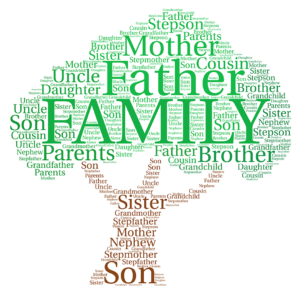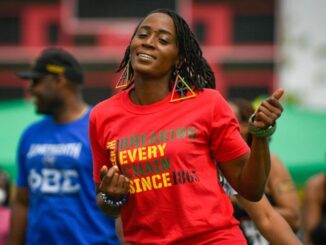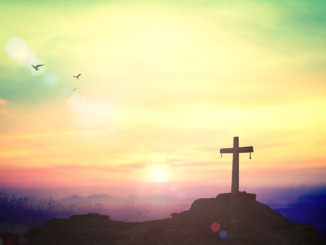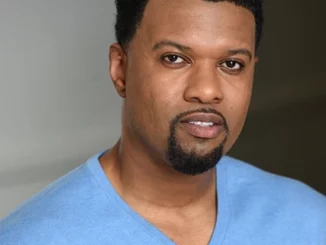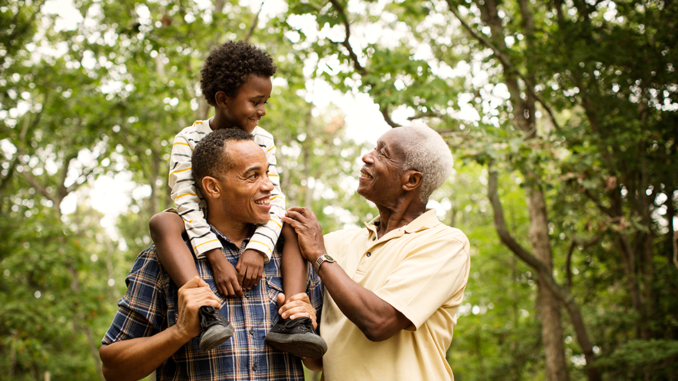
By Dr. Carlton Long
From time to time, unwinding, I will sit in front of my computer, scrolling through Youtube, and will occasionally hit gold — stumbling quite serendipitously upon a powerfully gripping song by some extraordinary individual or group. Or, as chance may have it, in our nearly post-pandemic world, I may simply be out somewhere and discover that a truly great song has somehow suddenly stumbled upon me. This happened not long ago with Ray Charles’s gritty and yet mellifluous version of the heart-wrenching ballad “You Don’t Know Me” (see: (274) Ray Charles – You Don’t Know Me – YouTube). It found me in some restaurant, gym, or lobby and simply had me from jump. And, interestingly, while our inimitable Ray gives voice to a pathos-invoking character who pines in the shadows for his beloved who does not “see” him, or his erotic love, it occurs to me that this enchanting (eros/romantic love) song can also be experienced metaphorically as our cultural past calling out to us, from a place of a love that is philos (brotherly/sisterly love), or even agape (highest order of spiritual/sacred love). Ray intones: “And anyone can tell, you think you know me well, but you don’t know me, child.”
This Mannish Water column this issue therefore is very much about my father, actually, who died exactly eight years ago tomorrow, a resurgent and pending anniversary which, for this year, has only just this moment occurred me. Dad introduced my siblings and me to Ray Charles, for Dad was the one who brought “the blues” into our modest (in every way) and reserved Christian household in Gary, Indiana in the 1960s and ’70s. On Sundays, we children couldn’t play “the blues” at all on our “record player” (mind you, “the blues” was, in our household, a catchall term for a vast universe of secular music in general, and especially those with themes of romantic or erotic love), but my Dad could do what he wanted on Sundays or any day; and so, sometimes he turned on a television show that was, even on a Sunday night, featuring Ray Charles, B.B. King, or some other greats from the blues or jazz pantheon that fed my father’s Southern soul (he’d sojourned North during the Great Migration, from Alabama to Indiana, his third grade education fully in tow and good enough to support a wife, children and him by dint of his money-earning, unskilled labor). It is not simply that Dad (Quint Long) introduced my siblings and me to the legendary voice of Ray Charles, but he also seems to have passed down. at least to me in particular, the habit of playing favorite songs repeatedly, in a loop. If Dad, who worked for nearly 30 years in the steel mills of Northwest Indiana, never missing a day’s work, to fed his 10 children, ever got a great song into his head, he could “play it to death” (as he did when my brother Dwight’s high school barbershop quartet sang “Goodbye, My Coney Island, Baby”, and won first place in the state, to boot.) Dad wore the cassette tape out, to use his vernacular. His appetite for a particular song could become insatiable.
And throughout my life, at least since my elementary school days, it has been the same for me. Indeed, if the internet really could be broken, I surely would have been responsible for breaking it many a time in recent years, including when I stumbled last year upon Ray Charles’s inimitable version of “You Don’t Know Me”. Of course, I had heard the song before, as no doubt you have — here or there — by Ray or some other artist; but somehow last year I really heard the lyrics, the simple tragic storytelling, and I caught the iridescent, intoxicating poetry of it all as never before. To go deeply, it is a song about the various types of love, the nature of courage, the meaning and power of boundaries, and the essence of epistemology. In philosophy, in short, epistemology asks: “What can be known?”; “Who can know it?”; “Who may know it?”; ” How, if at all, can such knowledge be verified?”; “What, if any, limitations surround the knowledge?”; And it asks also: “How do we know that we know?”. Deep stuff with powerful implications.
The song aside, too often we really don’t know our cultural history enough, not even our family history, our short-, let alone long-term, genealogy. I implore you, therefore, as I did in the first Mannish Water column in Heart & Soul Magazine, back in November of 2021, to trace your roots. Seize the highly advanced technological gifts provided us through African Ancestry, 23andme, or Ancestry.com (just to name a few of the major genealogical research companies) to learn more about your family’s migratory human footprint in history. We are all Odyssean. Find your family’s path and share it with the youngins. Unclaimed, unseen, unresearched, unviewed photographs, census records, diary notes, preserved letters, and officially signed draft cards call out lyrically to you, as they have to me, from dusty rooms and untapped resources: “And anyone can tell, you think you know me well, but you don’t know me, child.”
And, again, for me, this all comes back to Dad, again. You see, I am the youngest of all of Mom and Dad’s full baseball team of children, and I was very much a “Momma’s Boy”. Consequently, perhaps subconsciously even, I intellectually favored my mother’s side of the family. It didn’t hurt that my mother’s maiden name was Turner, and I have long loved Nat Turner. Bible in one hand and axe of liberation in the other, he has long been my go-to theologian. I have not discovered Mr. Turner anywhere up my family tree, but I have not given up the searching. The Turners are all on Mom’s side.
I eventually did come around to making serious queries on my father’s side, particularly as I came into my own manhood. I traveled down to Alabama before flying back to Oxford, England, when I was in grad school, to meet my father’s father for the first and only time. My Dad’s father died a few months later, causing me to be even more profoundly thankful for the most extraordinary weekend that I had spent, at that point, ever in my life.
I queried all the more, decades later, when Dad was on his own deathbed. I asked him questions about his family. Moreover, when he was not himself quickly volunteering stories that he and I both knew (but never said out loud) rather desperately needed to be preserved, I was on the phone or sitting by his side asking him for more details about persons such as “Bubba”, who, as the family store went, behaved strangely when the “sap would rise”; and about all other kinds of details from the colorful family sagas that Dad seemed strangely at peace sharing in microscopic detail in his last days alive. After Dad died, Mom (whom I call “Mummy” after my many years in England and sending her “Happy Mother’s Day, Mum” cards, which made her laugh, from the UK) told me more about my dad’s maternal line. “Lapsley”, she told me, was Dad’s grandmother’s maiden name.
“What an unusual name!”, I thought, as I began delving more deeply into my paternal line of genealogy, as I followed the breadcrumbs that I could discern and trace on the internet and via telephone conversations with my dad’s “people”, my siblings having done some of the research as well. I soon discovered through searching my own emails for the name “Lapsley” (which kept sounding familiar) that a young Hampton University student whom I had advised when I was a prestigious scholarship consultant advising hundreds of HBCU students nationwide, was not simply a “Lapsley”, but also — I soon found out through two quick phones calls — was actually a very close cousin. How strange it was to have discovered midyear that one of my many advisees nationwide was actually my blood kin. I had in fact grown up hearing the names of her grandparents as household names and faceless referents without my ever really knowing them as real people at all. In my search recently, I also found that the famous Edmund Pettus Bridge in Selma, Alabama actually lets out onto “Lapsley Street”. I further found that Booker T. Washington writes about the white missionary Lapsley who was a missionary in the Congo with William Sheppard (“The Black Livingstone”). Indeed, Lapsley and Sheppard met the nefarious, Hitlerian King Leopold in the Congo. I found online the still standing “Lapsley Church” — all related to Alabama, where my father’s Lapsleys also originated — well stateside, at least. With regard to the true origins, my 23andme results have taken me on an extraordinary journey along the west coast of Africa and in many other places on The Continent (and elsewhere). My point is this, I have not fully connected the dots, not at all, but through academic research, conversations with family elders, and DNA haplogroup science, I am beginning to see a family portrait attempting to emerge through something basically resembling the impressionistic art of pointilism. Like a painting by one of the great impressionists, colorful images of my beautiful family are beginning to take shape for me, and I am — as a result — beginning to know a bit more about who I truly am.
I implore you, too, therefore, to devote some quality time to ethnography within your own family. It can start with a simple question or two directed at those who are older than you. You will be shocked at what you will find, just under the surface. Also, I heard from a genealogist somewhere that we should let the oldest person in our families be interviewed by the youngest possible notetaker in our families. Let them dialog with one another. Let the young notetaker ask questions. You will be surprised at how brilliant and generative the questions will be. And let the elder speak freely. The answers, too, will be revelatory — having dwelled for aeons right under the surface of our family’s thoughts and conversations — untapped, but alive, real, and present. Record the conversation(s) on video, not for Facebook or Twitter or Instagram, of course, but for your family record. Extend your inquiring hand into the wonders of your family’s past.
”You give your hand to me, and then you say ‘hello’ — and I can hardly speak; my heart is beating so. And anyone can tell, you think you know me well, but you don’t know me, child.”
Go get that family knowledge! Go get to know your family history…and well. See you next time.
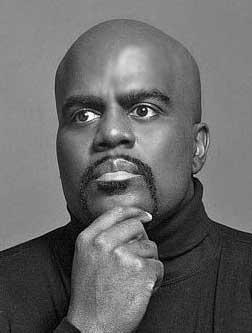
Heart & Soul columnist Dr. Carlton Long, is a former U.S. Rhodes Scholar, and is currently Associate Professor and Director of the Freddye T. Davy Honors College at Hampton University. He has recently co-edited with 2022 Guggenheim Fellow Dr. Olufemi Vaughan, of Amherst College, a forthcoming anthology titled (Mannish Water: Social, Political and Cultural Essays by Black Scholarly Men in America, Reflections on Their Lives and World), Africa World Press. A native of Gary, Indiana, Dr. Long has appeared in national and print media, including National Public Radio (NPR), The Washington Post, The New York Times, Billboard, and New York Law Journal. His television appearances have included CNN, PBS and multiple other national, cable and local networks.




